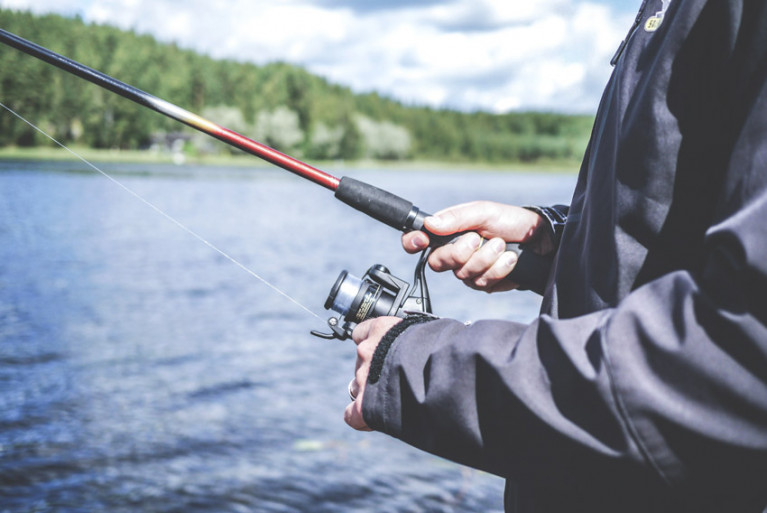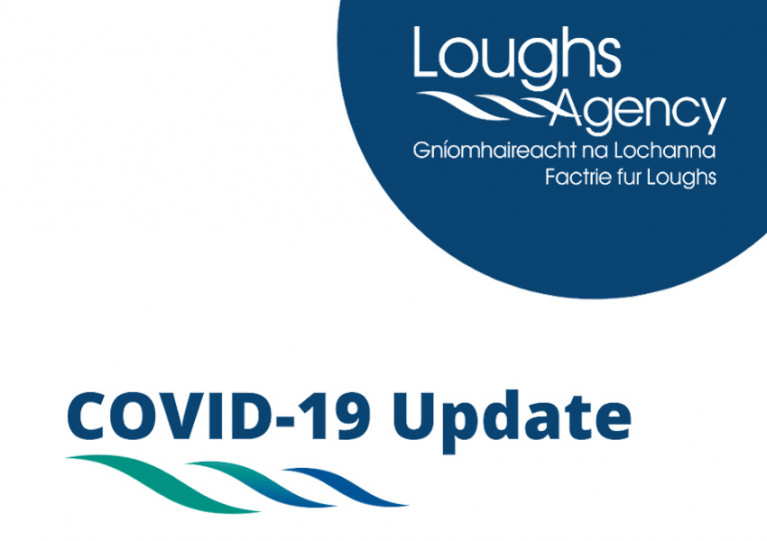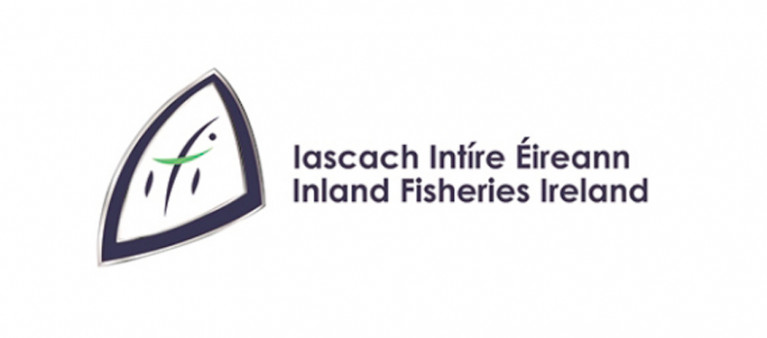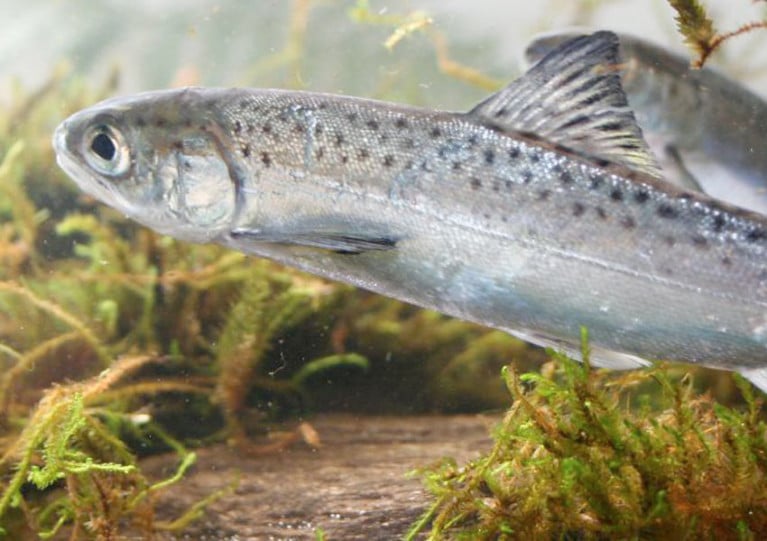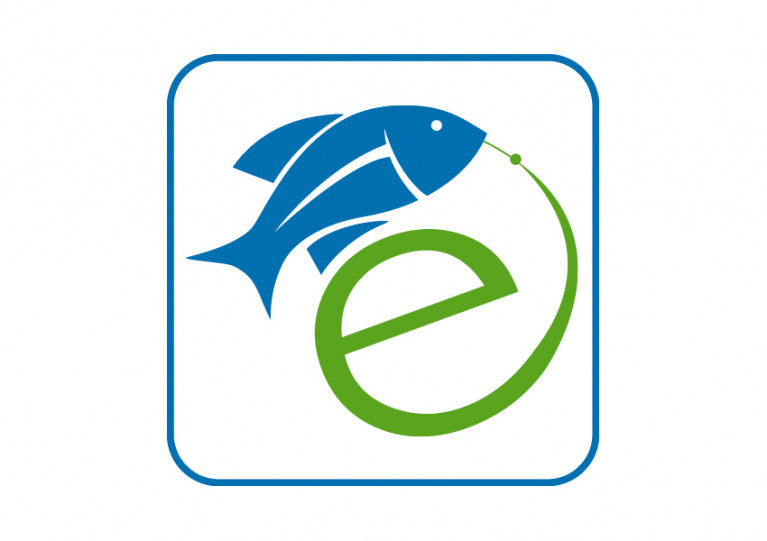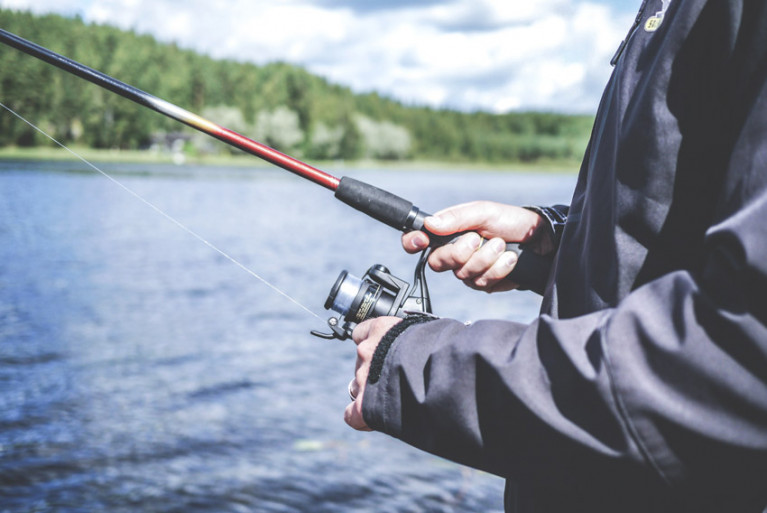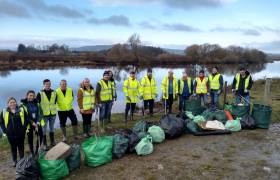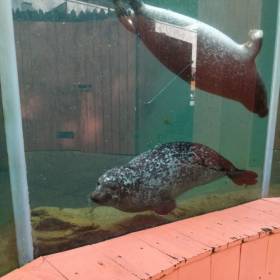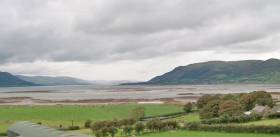Displaying items by tag: Loughs Agency
Loughs Agency chief executive Sharon McMahon has contacted anglers, angling clubs, fisheries and angling governing bodies to update them on the impact of Covid-19.
The letter urges the angling community to follow the guidance provided and to keep up to date with the latest advice from the Public Health Agency (PHA) in Northern Ireland and the Health Service Executive (HSE) in Ireland.
In her letter dated Friday 3 April, McMahon notes the guidance from governments north and south regarding the circumstances where members of the public may leave their homes at this time.
“One of these is to take exercise, either alone or with other members of their household. The only forms of exercise permitted [in the UK at this time] are walking, running or cycling,” she says.
“Angling, like many other forms of recreation, is not specifically mentioned as a form of exercise, therefore we would urge you not to go fishing at this time – this includes Loughs Agency’s permit waters on the River Finn, River Foyle and at the Greenbraes.
“We thank those anglers who are already adhering to this advice and we will continue to review government guidance as it is issued.
“While we hope these restrictions won’t last long, we must all do what is asked of us by government and work together to fight this pandemic.
“This is about saving lives and supporting our healthcare systems and frontline staff. The agency is encouraged by private fisheries closing during this pandemic and heeding government advice.”
The statement from the Loughs Agency comes after Stormont’s fisheries minister Edwin Poots closed all state-owned angling waters in Northern Ireland, with those owned by NI Water following suit.
Loughs Agency offices remain closed but staff are working remotely where possible and anglers can engage by phone or email.
As Derek Evans writes in his latest angling column for The Irish Times, there are as yet no specific restrictions on angling in the Republic, but permit and licence sales have been paused, and “those intending to fish must adhere to the latest precautionary advice on coronavirus”.
Loughs Agency Updates On Operations Due To Covid-19
Following the UK Government’s advice in relation to Covid-19, the Loughs Agency has put in place a number of measures to maximise capacity to continue to deliver business and statutory services to the public.
The public are still encouraged to report illegal angling or pollution concerns through the Waterwatch App or 24-hour response line on +44 2871 342100.
Loughs Agency offices remain closed and customers are strongly encouraged to engage using email ([email protected]) and telephone (+44 2871 342100).
Those wishing to pay bills or undertake other financial transactions with the Loughs Agency are requested to do so online, via telephone or by bank transfer.
Staff will be, if possible, working from home. In these circumstances there may be delays in replying to queries.
The agency adds that it is currently experiencing technical difficulties with its elicence website, and is working to try and fix the issue as quickly as possible.
Regarding the current restrictions announced by the Irish and UK Governments, the cross-border body for fisheries in Carlingford and Foyle reminds that the only permitted activities that have been specified are walking, running and cycling for the purpose of local daily exercise.
“We must all do what is required of us by the Government’s and work together to fight this pandemic. This is about saving lives and supporting our healthcare systems and frontline staff,” it added in a statement.
Inland Fisheries Ireland Issues Statement On Covid-19 Response
In a statement issued yesterday evening (Wednesday 18 March), Inland Fisheries Ireland confirmed measures it has put in place in response to the ongoing Covid-19 pandemic emergency.
“Following the HSE and the Government’s advice in relation to the delay of Covid-19, Inland Fisheries Ireland (IFI) has put in place a number of measures to maximise our capacity to continue to deliver our business and statutory services to the public,” the angling authority said.
“All main River Basin District (RBD) offices remain open with a minimum staff complement. IFI strongly encourages the public to engage with IFI using email, telephone and letter.
“IFI has requested that office-based staff, if possible, work from home. In the circumstances, there may be delays in replying to queries.”
It added: “IFI field staff continue normal operations bearing in mind current HSE advice. IFI staff may attend meetings remotely only (e-meetings, conference calls etc).
“Those wishing to purchase licences or permits, pay bills or undertake other financial transactions with IFI are requested to do so online, via telephone, bank transfer or by post.
“IFI has a 24-hour confidential hotline (1890 34 74 24 or 1890 FISH 24) through which members of the public may report incidents of illegal fishing, water pollution and invasive species which will continue to operate.”
Meanwhile, in the north of the lsland, Loughs Agency offices, including the Riverwatch Aquarium in Derry, were closed to the public from 5pm last Friday evening (13 March).
“The majority of services delivered by the agency will continue, particularly those undertaken in open spaces such as fishery protection patrols,” the cross-border body said.
“Anglers can continue to purchase fishing licences online or over the telephone +44 2871 342100.
“Anglers are also advised that the forthcoming North West Angling Fair, due to take place on 4-5 April, has been cancelled.”
NI Primary School Pupils Become ‘Salmon Ambassadors’ For Loughs Agency
Last week the Loughs Agency visited local primary schools in the Foyle and Carlingford areas as part of the Salmon Ambassadors programme.
The programme, which forms part of the legacy of 2019’s International Year of the Salmon, will see the agency working with eight schools (six in Foyle and two in the Carlingford catchmen) to connect pupils with their local river habitats, and use the lifecycle of the salmon to teach them about the broader themes of biodiversity and ecology.
Loughs Agency education officer Michael Cosgrove said: “Through the Salmon Ambassadors we hope to create an informed generation that will value salmon as they should be valued and most importantly, value the environment we share with the ‘King of the Fish’.”
In their journey to becoming a Salmon Ambassador, pupils will learn about issues effecting the Atlantic salmon from local to global level and reflect upon how modern lifestyles have an impact on local wildlife.
Through a range of activities in class and on the banks of local rivers, pupils will be encouraged to take ownership of wild places and wild things so that they can be better conserved for future generations.
Allan Bogle, community engagement officer, said: “Wach school will also look after around 100 salmonid eggs until they hatch. This a participative education programme which is really hands-on so that each pupil can connect with the salmon and their local river.”
Over the next few months, 163 pupils will undertake a range of activities as they research the migration routes, threats and life cycle of the salmon, before presenting their findings and results at a salmon conference in June.
Upgrade Coming For Loughs Agency eLicence Website
Anglers in the Foyle and Carlingford areas are advised that the Loughs Agency will soon launched an upgraded eLicence website that meets GDPR requirements and includes a number of improvements based on user feedback.
When the new site goes live, all anglers will need to create a password to access their account as an additional security method. If an angler does not yet have an email linked with their account, they should contact the Loughs Agency to update it.
Another change is the catch return section which has been amended to make it more user-friendly. Now angler can edit their catch return log should they make an error. Anglers can also copy catch return data for inputting similar multiple catches.
It is hoped that these changes will encourage more anglers to make their catch returns. For the 2019 season only 488 anglers have made their catch return ahead of the deadline today, Tuesday 21 January.
Anglers also noted they would like the ability to print their licence to carry with them when fishing. This function has been added and the printout includes a QR code that agency fishery officers can scan to quickly access the anglers licence data on the river bank.
Once the new site goes life, anglers with any issues accessing the eLicence website should contact the Loughs Agency at +44 (0) 2871 342100 for assistance.
Foyle & Carlingford Anglers Encouraged To Make Catch Returns For 2019
Anglers are being encouraged by the Loughs Agency to log and submit their efforts, catches and releases for the 2019 angling season in Foyle and Carlingford.
Whenever anyone buys a rod licence to fish for salmon and sea trout in Foyle and Carlingford, they are legally obliged to let the Loughs Agency know if they have caught fish and how many times they went fishing.
This information can now be easily recorded through the loughs angling elicence website. Simply log in with your Angler Number and update your angling log for the 2019 season.
John McCartney, Lough Agency director of conservation and protection, said: “This is really important information because it enables our scientists to understand how many fish are caught, taken or returned back to the river and how much time anglers put into catching those fish.
“It provides an indication of how well stocks are doing and if we need to take any action should catches take a turn for the worst.”
Freshwater fishery biologist Mark McCauley advised that the data is used “to screen proposed developments such as roads, hydro, etc that may impact the interests of the fishery. We can also use the data anglers provide to assess the strength of fish runs in the system this year and also for long term trend monitoring.”
As reported last week on Afloat.ie, salmon and sea trout anglers in the Republic of Ireland have been reminded to return their 2019 logbooks and unused gill tags as soon as possible, even if there is no catch recorded.
Volunteers Pitch In To Help Clean Up River Foyle
In recent weeks the Loughs Agency has been working with groups of volunteers to clean up the banks of the River Foyle in Northern Ireland.
The Foyle Ambassadors, a group of young environmentalists, completed a clean-up on the upstream bank of the River Foyle near the Strabane Canal with the help of TV presenter Joe Mahon and his crew who were filming in the area. Between them they removed over a dozen bags worth of rubbish.
Elsewhere, a team of Ulster Bank branch managers completed litter pick on the banks of the River Foyle close to the mouth of the old Strabane Canal.
Local director Chris McGuinness said: “Even though the amount of plastic waste was shocking, this was an enjoyable and very worthwhile activity for our team. We would definitely be interested in doing of this sort of environmental activity in the future.”
Finally, a group of volunteers from technology firm Seagate took part in a bank clean-up downstream of the Strabane Canal, removing close to 30 bags of rubbish. The volunteers said they could not believe how much plastic waste had accumulated in such a beautiful location.
The agency’s community engagement officer Allan Bogle said: “This is the most rubbish I have seen collected during a volunteer litter pick. It is a great feeling to return this natural area to the way it is supposed to look.”
Loughs Agency chief executive Sharon McMahon added: “Rivers are an important habitat for fish and wildlife. Sadly, pollution, including litter and plastic gather in and along the rivers, often in remote places.
“River clean-ups are a great way to improve our rivers and make them a more enjoyable place to visit. As part of our community engagement programmes we are pleased to facilitate opportunities which enable the local community to take an active part in improving their environment.”
For more information on volunteer opportunities with the Loughs Agency, contact Allan Bogle at [email protected]
Photo Contest To Celebrate ‘Year Of The Salmon’ In Foyle & Carlingford Catchments
The Loughs Agency has announced a photography competition to celebrate the Foyle and Carlingford catchments and International Year of the Salmon.
Prizes of vouchers for an online camera shop are up for grabs — in categories for under and over 18s — for photographs that should depict one of the following themes:
- The Atlantic Salmon in celebration of International Year of the Salmon.
- Landscapes and seascapes that have as their subject the river or marine environments within Foyle and Carlingford catchments.
- Wildlife of Foyle and Carlingford that have the river or marine environment as their natural habitat.
The deadline for entries is noon on Friday 31 January. Full details of the categories, prizes and rules are available HERE.
Tracking Of Juvenile Seals Is A First For Northern Ireland
Two juvenile seals named Ariel and Merida after the Disney princesses are part of a novel marine research project using the latest technology to record and understand harbour seals’ behaviour.
In a first for Northern Ireland, the Exploris Aquarium in Portaferry, Co Down has teamed up with University College Cork as part of the EU-funded, Loughs Agency-led SeaMonitor project to tag the female rehabilitated seals prior to their release from Knockinelder Beach in Co Down yesterday (Sunday 17 November).
Although seal pups have been rehabilitated and released by Exploris since 1989, this is the first time they have been tracked following release to give scientists a better understanding of how they fair post-release.
‘Although seal pups have been rehabilitated by Exploris since 1989, this is the first time they have been tracked following release’
Dr Mark Jessop, lead scientist from UCC, said: “We use state-of-the-art tags glued to the seals’ fur which drop off naturally during the seal’s annual moult, but until then provide information on where the seals are going as well as their dive behaviour.
“This gives us unique insights into post-rehabilitation survival and how juvenile seals learn to forage successfully in the wild.”
It is hoped that the data will be used to inform better management and protection for harbour seals.
The release of the two seals marks the first this season from Exploris Aquarium, NI’s only seal rehabilitation facility — with more releases to come.
“On average we take in about two dozen seals every year,” said Exploris curator, Peter Williams. “Seals are a protected species here in the UK and Europe so at Exploris we take in seal pups from all over the Northern Irish coast that have succumb to illness or have been affected by human interference and as a result abandoned by their mothers.”
Loughs Agency chief executive Sharon McMahon added: “This is an especially exciting time as the seals are the first species to be monitored since the project launched earlier this year.
“The agency is proud to be leading the way alongside expert colleagues from statutory and academic institutions and a range of stakeholders that will ultimately produce dynamic management plans for some of our most important and vulnerable species.”
‘These achievements ensure the safeguarding of our shared marine environment’
Discussing the importance of this work, Gina McIntyre, CEO of the Special EU Programmes Body, said: “I’m delighted to hear about the progress of this pioneering EU INTERREG cross-border project, which has seen a tremendous amount of development in such a short space of time.
“These achievements ensure the safeguarding of our shared marine environment and continue the necessary conservation work to protect priority species and habitats just like Ariel and Merida.
“The significant progress so far can be attributed to the strong cross-border partnership, combined with innovative marine technology. The expertise and determination of SeaMonitor’s project partners is helping push the boundaries of marine research in the seas not only around Northern Ireland, but in Ireland and Western Scotland.”
The work is part of SeaMonitor — a unique marine research project, the first of its kind in Europe, studying the seas around Ireland, Western Scotland and Northern Ireland.
The project is led by the Loughs Agency and supported by another eight leading marine research institutions, using innovative marine species tracking technology to better understand and protect vulnerable marine life in our oceans.
Maritime Heritage Seminars In Foyle & Carlingford This Month
The Loughs Agency has organised two morning seminars around the theme of maritime heritage in the Foyle and Carlingford areas later this month.
The first will take place at Greencastle Golf Club next Friday 22 November from 9.30am to 12.30pm, while Carlingford Marina will host its seminar the following Friday 29 November at the same times.
Both events will include contributions from Patrick Fitzgerald, a professional historian with a long career in researching genealogy and uncovering the story of migration through the centuries, who will take attendees on a journey of migration through the Foyle and Carlingford loughs.
The Greencastle seminar will also hear from Gerald Crawford, former secretary of the Foyle Fisheries Commission, who will tell the story of commercial salmon fishing across two decades Fishing for Salmon in the Foyle.
Retired mariner Seamus Bovaird will be presenting on paddle steamers on Lough Foyle, while Edward Montgomery, secretary of The Honourable The Irish Society, will speak about the society and the Foyle fisheries, and Wes Forsythe, a career archaeologist with an interest in the Foyle area, will presenting on ;Salt and the Sea;.
In Carlingford, Brendan McSherry, Louth County Council’s heritage officer with a passionate awareness of Carlingford Lough, its shores, hinterland and communities, will present on Carlingford Lough, a barrier or a highway?
Kirstin Lemon, geologist by profession with a broader intent to inform communities about their geology and the influence on their culture, will speak about ‘Mountains, Myths and Maritime: a UNESCO Global Geopark in Mourne Gullion Strangford’.
Finally, Liam Campbell, a researcher with an intense interest in exploring the development of cultures within distinct catchments, will present on the ‘Culture of the Catchment – Source to Sea’.
Admission is free free of charge for both events, however tickets must be obtained through Eventbrite to ensure a place at the Foyle and Carlingford seminars respectively.
In other heritage news, the Department of Culture, Heritage and the Gaeltacht has published its report on the public and sectoral meetings held earlier this year on Heritage Ireland 2030, Ireland’s national heritage plan.
Among the issues raised at the sessions in Kilkenny and Galway in February were a lack of joined-up thinking across Government departments with relation to heritage issues, and a recognition of the need to understand heritage in a holistic sense encompassing everything from regional traditions to built heritage and wildlife.


























